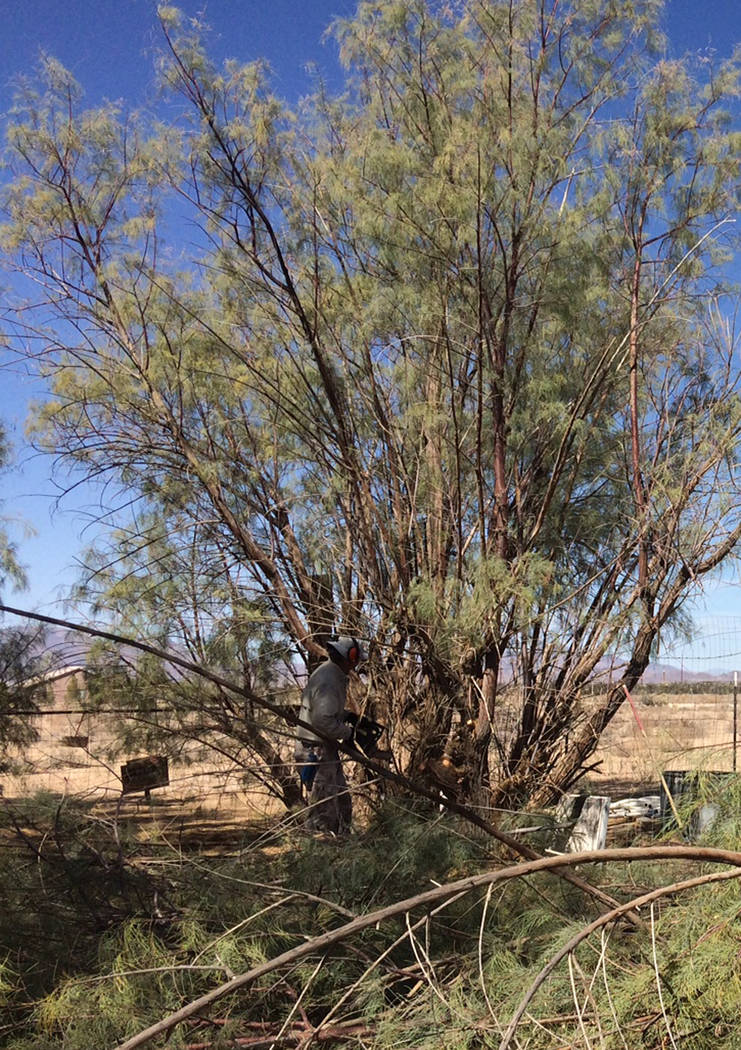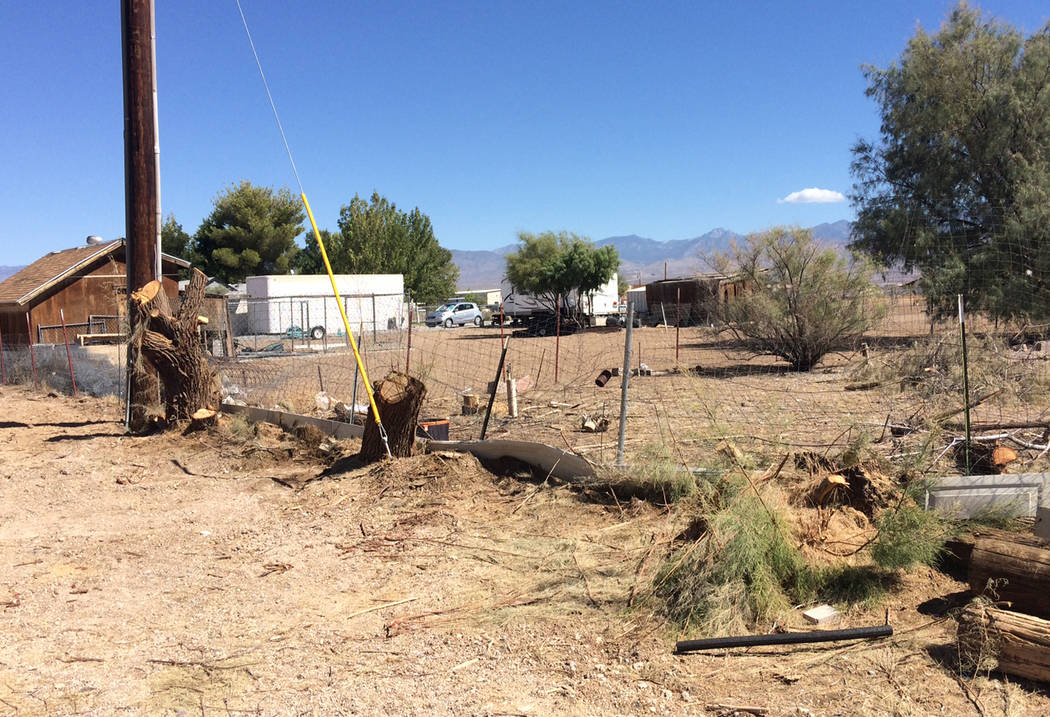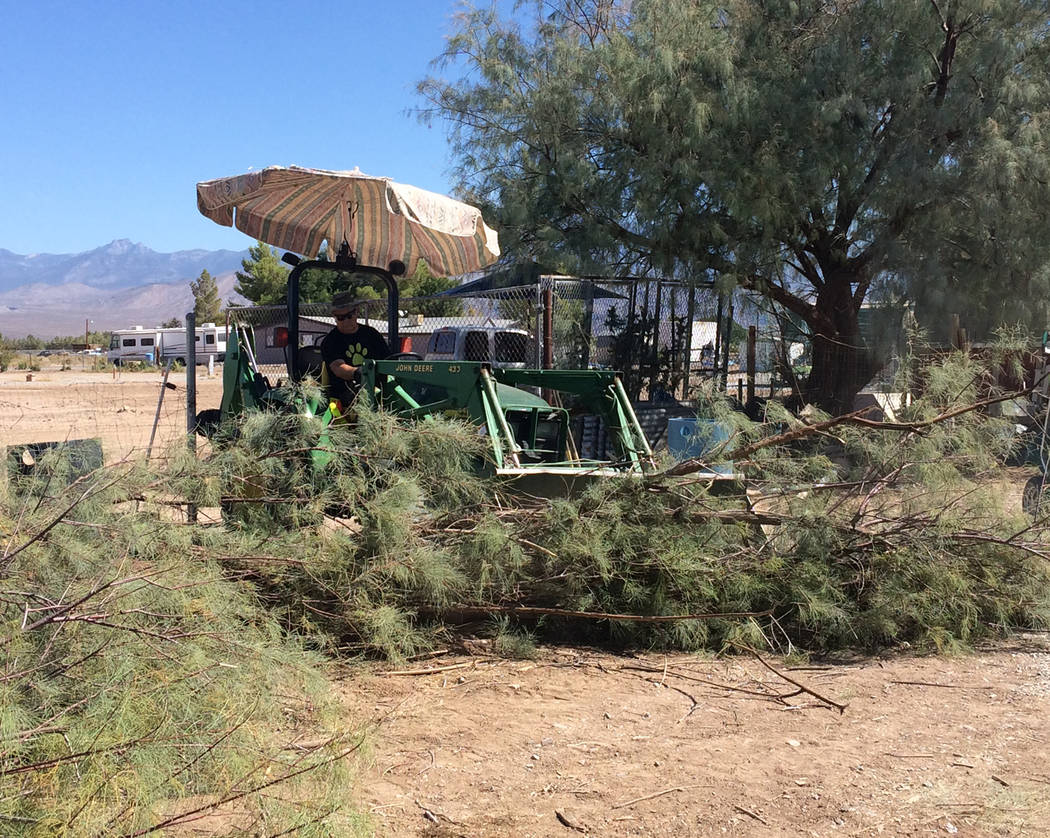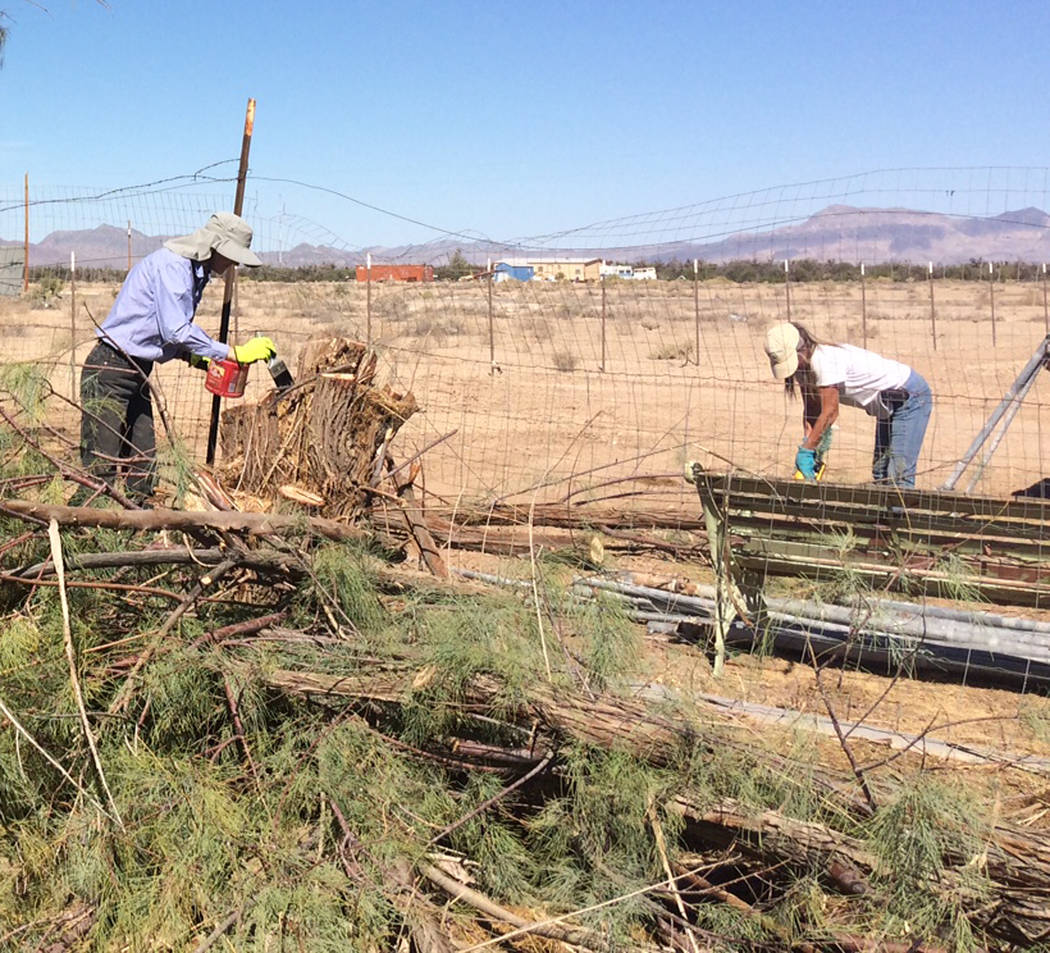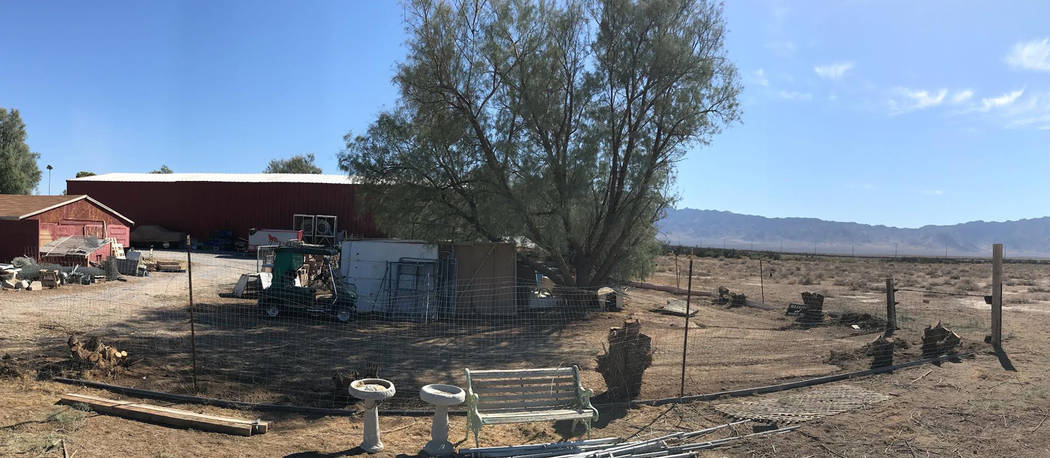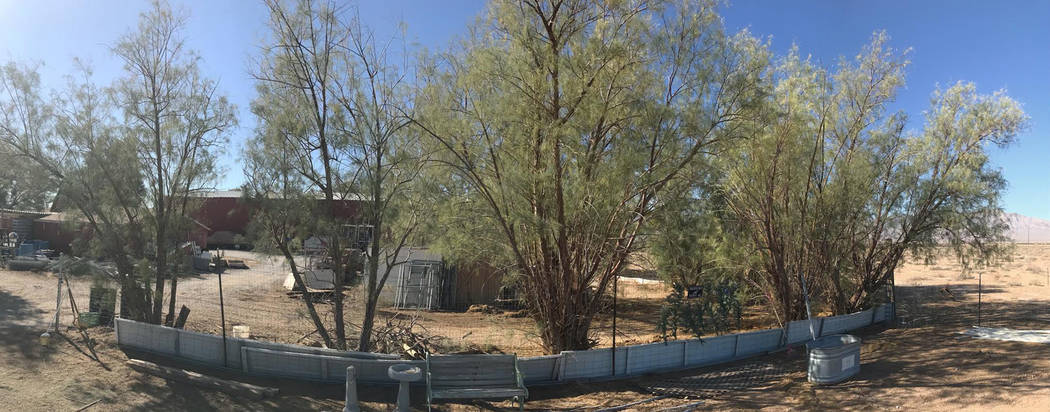Saltcedar removal underway in Pahrump
Taking the information they learned from a Salt Cedar Control Workshop hosted in Pahrump earlier this year, the volunteers and staff at West Star Animal Rescue are ridding the property of many of these invasive, water-consuming plants and they are calling for others in the community to follow their example.
In August, the Nevada Department of Agriculture and University of Nevada, Reno Cooperative Extension teamed up to host the workshop that was attended by no less than 100 residents, all eager to learn about the tamarisk family. State noxious weeds coordinator Sean Gephart spent the evening educating attendees on the destructive effects of salt cedars, including the environmental impacts and their massive water consumption.
According to Gephart, salt cedars are capable of using up to 14 acre-feet of water per year, comparing that with the average estimated household domestic well use of just 0.5 acre-feet per year. This information came as something of an eye-opener to those working at West Star Animal Rescue, who immediately connected the enormous amount of salt cedars on the ranch’s property to their summertime water shortage issues.
West Star Director Kim Simon explained that the ranch has been plagued with repeated water problems, with the on-site well’s water level dropping each year when the weather gets extreme and creating a whirlwind of concern for those operating the rescue.
“Our well actually pulls dry multiple times during the summer, which is really scary when the dogs and cats rely so much on water for their pools, drinking, swamp coolers, etc., in spite of our efforts to conserve,” Simon detailed. “And it seems to be getting worse. We started running out of water in early June, when last year we didn’t start running dry until the middle of July. It is our belief, after attending the recent salt cedar eradication seminar at the University of Nevada Cooperative Extension 4-H building, which was excellent, that the 50-plus salt cedars on the West Star property are directly responsible for sapping our water supply.
“This fall, we are embarking on a program of eradication that will involve donations of dumpsters for clearing the cut trees, volunteer time and chainsaws to help with the actual tree clearing, and money to purchase the chemicals that need to be painted on the stumps immediately after cutting to make sure the trees don’t regenerate.”
True to that goal, the West Star team started its removal process in September and the team is marching forward, steadily and surely eliminating as many of the invasive plants as practical and possible. Simon invited the Pahrump Valley Times to the ranch on Sept. 22 to observe the effort in action.
“As you can see, we have dozens of huge salt cedars here,” Simon said as she provided a tour of the ranch. “We already removed several, a few of them because they were very brittle and they came down in windstorms. Right now we are working in the back corner over here, because we are concentrating on taking the trees that don’t provide essential shade for the animals. We have to be realistic.”
West Star workers Sharon and Courtney Oster, along with Terry Dougherty and Heidi Wells, were hard at work cutting into a massive thicket of tamarisk trees, using chainsaws, tractors and manpower to demolish the plants. Doughtery remarked that the trees being pulled down that afternoon were some of the smaller ones, with even larger specimens removed earlier that month.
“So if you do the math, even these smaller trees take at least a couple acre-feet of water per year. That’s just staggering!” Simon added. “If everybody who had salt cedars on their property took down just one or two trees, imagine how much water that could save. That would be huge.”
“Sharon is painting the poison that we need to put on, that we got from Tractor Supply and that has to go on almost immediately after the tree has been cut,” Simon continued to explain. “The chemical is quite expensive but as a nonprofit, Tractor Supply doesn’t charge us taxes and they also give us a bit of a break. Mark, the manager at Tractor Supply, is great, he is very kind and very supportive.”
Just two days after the tour, Simon reached out to note that West Star had received an exciting and imperative donation. “We were delighted to hear today that John Shea of Pahrump Valley Disposal donated a dumpster to us,” Simon said on Sept. 24. As of Oct. 3, Simon reported that a total of 17 salt cedars had been removed and there is so much debris from the trees that the rescue is once again in need of funding for more dumpsters to haul all of the wood away.
Simon said the community can help with the project by offering their labor to remove the trees and donations to pay for the expensive chemical and dumpsters that are required. However, Simon was quick to put the focus back on the ranch, noting, “As much as I think we need help here with this, that is secondary. Our focus is always on the animals. So anyone who wants to come out and help with the animals, to walk them, play with them, care for them, they are always welcome. The animals that we have often are animals that are not socialized so they need a lot of TLC.”
For more information or to learn how to help West Star Animal Rescue call 775-727-6505 or stop by 780 Manse Road in Pahrump.
Contact reporter Robin Hebrock at rhebrock@pvtimes.com


